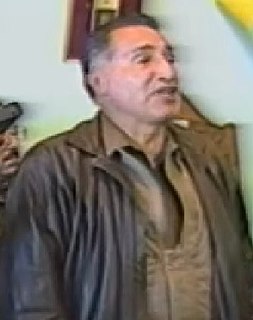Transport in Bolivia is mostly by road. The railways were historically important in Bolivia, but now play a relatively small part in the country's transport system. Because of the country's geography, aviation is also important.
Matilde Casazola Mendoza is a Bolivian poet and songwriter. She has managed to intertwine poetry and music composing songs rooted in the musical tradition of her country.

The Vice President of Bolivia, officially known as the Vice President of the Plurinational State of Bolivia, is the second highest political position in Bolivia. The vice president replaces the president in his definitive absence or others impediment and is the President of the Legislative Assembly.

The Bolivian Constituent Assembly, convened on August 6, 2006 in Sucre, with the purpose of drafting a new national constitution by December 14, 2007; extended from the original deadline of August 6, 2007. The Assembly approved the new Political Constitution of the State on 9 December 2007. It was put to a national referendum held on 25 January 2009, and went into force on 7 February 2009.

The Roman Catholic Archdiocese of Sucre is an archdiocese located in the city of Sucre in Bolivia.

Luis Ossio Sanjinés served as Vice President of Bolivia from 1989 to 1993, during the presidency of Jaime Paz Zamora. He belonged to the Christian Democratic Party.

Julio Garrett Ayllón was a Bolivian politician and lawyer who served as Vice President of Bolivia from 1985 to 1989 during the presidency of Víctor Paz Estenssoro.

The history of Bolivia since 1982 begins with the restorations of democracy after the rule of the military junta of 1982. Evo Morales held the presidency from 2006 to 2019. A new constitution was enacted in 2009. Bolivia's population has roughly doubled over this period, from 5 million in 1980 to 10 million as of 2012.

Adolfo Costa du Rels was a Bolivian writer and diplomat who became the last President of the Council of the League of Nations. He was the author of many plays, novels and other writings, mostly in French, and received several literary awards.

The 1989–93Bolivian National Congress was a meeting of the Bolivian legislature composed of the Chamber of Senators and Chamber of Deputies. It met in La Paz from 6 August 1989 to 6 August 1993 during the presidency of Jaime Paz Zamora.

The Foreign Minister of Bolivia is the head of the Ministry of Foreign Affairs. The current minister is Rogelio Mayta, who was appointed by president Luis Arce in November 2020.

Jaime Otero Calderón was a congressman, mayor, diplomat, cabinet minister, political leader, intellectual, and journalist from Bolivia.
Alejandro Pereyra Doria Medina is a Bolivian poet and filmmaker. He was born in Sucre, Bolivia, lived in Mexico, Brazil and Germany for many years, and now lives in Bolivia. His 2009 feature film Verse was selected for the 2010 Zero Latitude Film Festival Ecuador and the 2011 Festival Del Cinema Latino Americano Trieste.

Uritu Mayu is a Bolivian river in the Chuquisaca Department, Jaime Zudáñez Province, Icla Municipality. It is a left affluent of the Pillku Mayu.
The Armed Forces of Bolivia has four main branches: Army, Navy, Air Force and the National Police Force. Each of the four branches has a similar structure, each having four pay grades: non-commissioned officers, senior non-commissioned officers, commissioned officers and general staff. However, the SNCO roles vary depending on the branch; some of these hold specialisations.
Guillermo Capobianco Ribera was a Bolivian lawyer, writer and politician.










